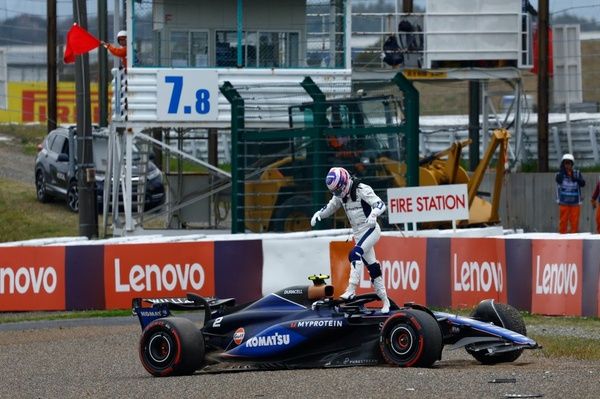Impossible for Racing Point F1 brake ducts to be illegal, says Szafnauer
Racing Point boss Otmar Szafnauer says that "it is impossible" for the Formula 1 team's brake ducts to be illegal, amid Renault's protests against them

After the Hungarian Grand Prix, rivals Renault followed up the earlier protest of the cars of Sergio Perez and Lance Stroll in the Styrian event with a second identical pair of protests, as the FIA had anticipated.
All of the protests will now be heard together, by the same set of stewards.
Renault contends that Racing Point received brake duct designs for the 2019 Mercedes W10, which it has since put into production for its RP20 car.
This revolves around the fact that last year it was legal to share information on ducts, but they became a listed part for 2020, which means teams have to design their own.
"It is impossible for them to be illegal," said Szafnauer. "Brake ducts, just so you know, take a long time to design and make, they are very, very complicated, and we have 886 individual drawings for our brake ducts."
Szafnauer added that the team doesn't have a Plan B as it has no alternative design: "They protested the brake ducts, and we don't have any other brake ducts, and mainly because they are legal.
"We have no concerns whatsoever. Our brake ducts are legal, we ran them last weekend, we ran them again this weekend and we will be running them again at Silverstone."

Racing Point was officially given three weeks to gather evidence after the Styrian GP, and the hearing is expected to take place in the week prior to the British GP, but Szafnauer admitted to some frustration at having to wait to prove the team's case.
"The only reason you may sense a bit of frustration is probably because I have all the information of how we designed and developed them," he said.
"And the rest of the world doesn't yet because we haven't disclosed that to the stewards.
"We had disclosed it to the FIA, and the FIA were satisfied that what we had done was absolutely legal.
"However, that's not how the judicial system works; it's the stewards who have the right and the power to rule. So now we've got to inform the stewards as well.
"And it just takes a little bit of time because when the FIA came to us to investigate how we designed and developed the car, including the brake ducts, they came to the factory, spent two days there, interviewed people looked at all of our drawings, looked at the design and development process, what we did in the tunnel and CFD, how we got to where we got, and they were satisfied.
"With the stewards you can't do that. You've got to bring the data to them, and then also explain through words on a piece of paper and drawings, what you've done. It takes a little bit longer.
"So the only reason I'm frustrated is I know what we've done, and why it's legal. And it wasn't a loophole or anything.
"It's just frustrating when I know we're legal and I get all these questions about well what happens if you lose? That's the frustrating thing."
Be part of the Autosport community
Join the conversationShare Or Save This Story
Subscribe and access Autosport.com with your ad-blocker.
From Formula 1 to MotoGP we report straight from the paddock because we love our sport, just like you. In order to keep delivering our expert journalism, our website uses advertising. Still, we want to give you the opportunity to enjoy an ad-free and tracker-free website and to continue using your adblocker.



















Top Comments